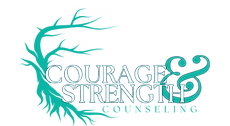
Services We Offer

Everyone’s healing journey is unique, which is why we offer a variety of therapy options to meet your individual needs. Together, we’ll find the approach that feels right for you and supports your growth. At the heart of our mission is the unwavering belief that true courage is found in the moment you choose to seek help. Taking the first step into therapy isn’t a sign of weakness- it’s an act of profound bravery.
At the heart of our mission is the unwavering belief that true courage is found in the moment you choose to seek help. Taking the first step into therapy isn’t a sign of weakness, it’s an act of profound bravery! We honor the strength it takes to face your inner world, to confront pain, and to sit with discomfort. Through therapy, we don’t just heal-we grow. Each session builds resilience, fosters self-awareness, and strengthens the tools you need to cope, thrive, and live authentically.
Our mission is to walk alongside you as you reclaim your story, rooted in courage, strengthened by healing, and empowered by growth. Courage brought you here. Strength will carry you forward!
Solution Focused Therapy (SFT) is a short-term, goal-oriented approach that emphasizes clients’ strengths, resources, and solutions rather than dwelling on problems or past difficulties. Its benefits include helping individuals build confidence, develop practical coping strategies, and create clear, achievable goals, which often leads to quicker progress compared to more traditional therapies. Because it focuses on what is working and how to build on successes, SFT can improve motivation, resilience, and a sense of control over life challenges. It is effective for a wide range of people, including children, adolescents, adults, couples, and families, and has been used to address issues such as depression, anxiety, relationship conflicts, stress, behavioral challenges, and even organizational or workplace difficulties. This flexible and empowering approach is particularly helpful for those seeking practical change in a relatively brief period of time.
Grief counseling is a form of therapy that helps people cope with the emotional, physical, and social impact of loss. While often associated with the death of a loved one, it can also support those experiencing other significant losses, such as divorce, job loss, illness, or changes in independence. Counselors provide a safe space to process emotions like sadness, anger, or guilt, while offering coping strategies and guidance for adjusting to life after loss. It is helpful for individuals of all ages—children, teens, and adults—as well as families and caregivers dealing with bereavement or anticipatory grief. Ultimately, grief counseling is designed for anyone struggling to adapt to a major loss and seeking support in navigating the healing process.
Cognitive Behavioral Therapy (CBT) is a highly effective, evidence-based form of psychotherapy that helps individuals recognize and change unhelpful thought patterns and behaviors. It offers benefits such as improving coping skills, reducing symptoms of anxiety, depression, and stress, and providing practical strategies to manage challenges in everyday life. CBT is often structured, goal-oriented, and time-limited, which makes it useful for people seeking focused, results-driven treatment. It can treat a wide range of conditions, including mood disorders, anxiety disorders, post-traumatic stress disorder (PTSD), eating disorders, substance use problems, and even insomnia or chronic pain. Because CBT focuses on skill-building and empowering individuals to shift their mindset and behavior, it is helpful for children, adolescents, and adults alike.
Adolescent therapy provides young people with a safe and supportive space to navigate the challenges of growing up, such as identity formation, peer pressure, academic stress, and family conflicts. It helps them build emotional awareness, develop healthy coping skills, and improve communication, which can strengthen their relationships both at home and with peers. Therapy can also reduce symptoms of anxiety, depression, and low self-esteem by addressing underlying issues early, preventing them from becoming long-term struggles. Additionally, it fosters resilience and problem-solving abilities, empowering adolescents to make positive choices and manage stress more effectively as they transition into adulthood.
Dialectical Behavior Therapy (DBT) is a type of cognitive-behavioral treatment originally developed to help people with borderline personality disorder but is now widely used for a range of mental health challenges, including depression, anxiety, post-traumatic stress, and substance use. It combines strategies from mindfulness, distress tolerance, emotion regulation, and interpersonal effectiveness to help people better manage intense emotions, reduce self-destructive behaviors, and improve relationships. One of its key benefits is that it teaches practical, evidence-based skills that empower individuals to cope with overwhelming feelings without resorting to harmful patterns. DBT also emphasizes acceptance and change, helping people validate their experiences while still working toward healthier behaviors. Overall, it has been shown to reduce suicidal behavior, increase emotional stability, and enhance overall quality of life.
_edited.png)
